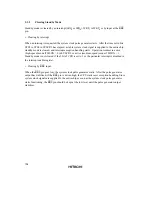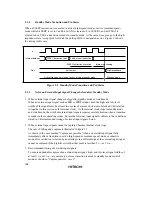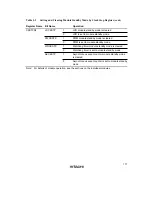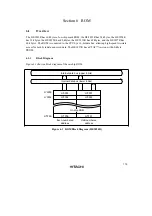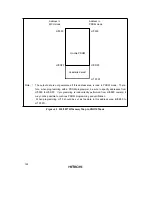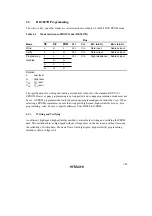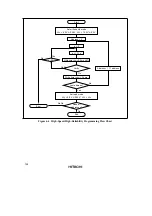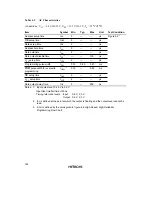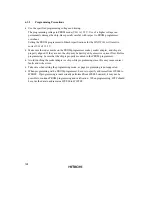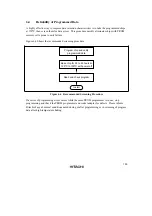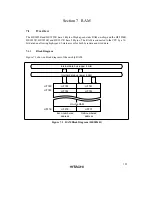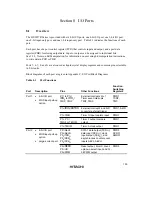
115
4. Time for direct transition from subactive mode to active (medium-speed) mode
A direct transition from subactive mode to active (medium-speed) mode is performed by
executing a SLEEP instruction in subactive mode while bit SSBY is set to 1 and bit LSON is
cleared to 0 in SYSCR1, bits MSON and DTON are both set to 1 in SYSCR2, and bit TMA3 is set
to 1 in TMA. The time from execution of the SLEEP instruction to the end of interrupt exception
handling (the direct transition time) is given by equation (4) below.
Direct transition time = { (Number of SLEEP instruction execution states) + (number of internal
processing states) }
×
(tsubcyc before transition) + { (wait time set in
STS2 to STS0) + (number of interrupt exception handling execution
states) }
×
(tcyc after transition)
........................ (4)
Example: Direct transition time = (2 + 1)
×
8tw + (8192 + 14)
×
16tosc = 24tw + 131296tosc
(when øw/8 or ø8 is selected as the CPU operating clock, and wait time = 8192 states)
Notation:
tosc:
OSC clock cycle time
tw:
Watch clock cycle time
tcyc:
System clock (ø) cycle time
tsubcyc: Subclock (øSUB) cycle time
5.8.3
Notes on External Input Signal Changes before/after Direct Transition
1. Direct transition from active (high-speed) mode to subactive mode
Since the mode transition is performed via watch mode, see 5.3.5, Notes on External Input
Signal Changes before/after Standby Mode.
2. Direct transition from active (medium-speed) mode to subactive mode
Since the mode transition is performed via watch mode, see 5.3.5, Notes on External Input
Signal Changes before/after Standby Mode.
3. Direct transition from subactive mode to active (high-speed) mode
Since the mode transition is performed via watch mode, see 5.3.5, Notes on External Input
Signal Changes before/after Standby Mode.
4. Direct transition from subactive mode to active (medium-speed) mode
Since the mode transition is performed via watch mode, see 5.3.5, Notes on External Input
Signal Changes before/after Standby Mode.




